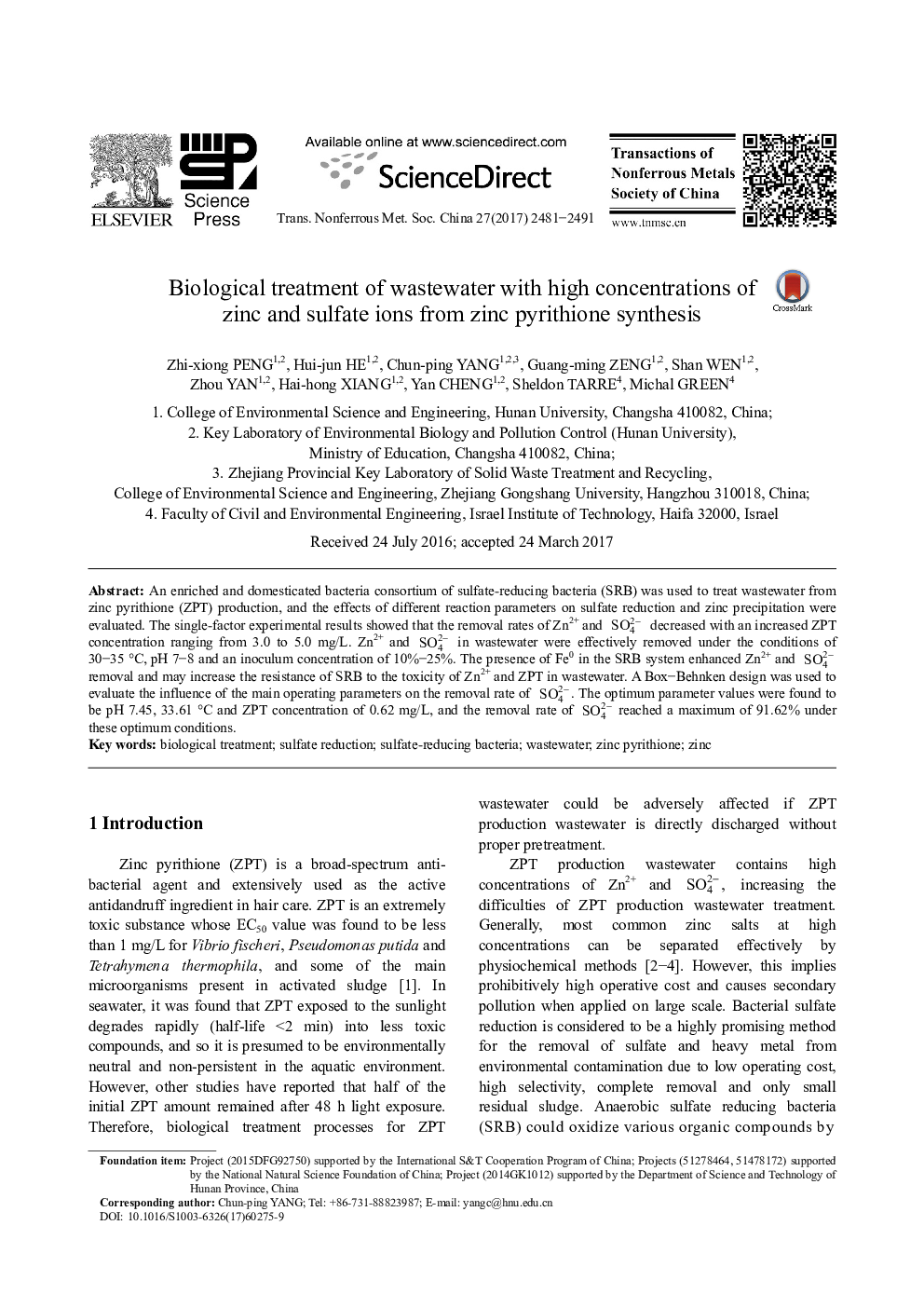| Article ID | Journal | Published Year | Pages | File Type |
|---|---|---|---|---|
| 8011782 | Transactions of Nonferrous Metals Society of China | 2017 | 11 Pages |
Abstract
An enriched and domesticated bacteria consortium of sulfate-reducing bacteria (SRB) was used to treat wastewater from zinc pyrithione (ZPT) production, and the effects of different reaction parameters on sulfate reduction and zinc precipitation were evaluated. The single-factor experimental results showed that the removal rates of Zn2+ and SO42â decreased with an increased ZPT concentration ranging from 3.0 to 5.0 mg/L. Zn2+ and SO42â in wastewater were effectively removed under the conditions of 30-35 °C, pH 7-8 and an inoculum concentration of 10%-25%. The presence of Fe0 in the SRB system enhanced Zn2+ and SO42â removal and may increase the resistance of SRB to the toxicity of Zn2+ and ZPT in wastewater. A Box-Behnken design was used to evaluate the influence of the main operating parameters on the removal rate of SO42â. The optimum parameter values were found to be pH 7.45, 33.61 °C and ZPT concentration of 0.62 mg/L, and the removal rate of SO42â reached a maximum of 91.62% under these optimum conditions.
Keywords
Related Topics
Physical Sciences and Engineering
Materials Science
Metals and Alloys
Authors
Zhi-xiong PENG, Hui-jun HE, Chun-ping YANG, Guang-ming ZENG, Shan WEN, Zhou YAN, Hai-hong XIANG, Yan CHENG, Sheldon TARRE, Michal GREEN,
